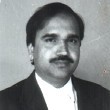Order 7 rule 14 (4) of cpc
 basavaraj shiromani
(Querist) 30 March 2012
This query is : Resolved
basavaraj shiromani
(Querist) 30 March 2012
This query is : Resolved
As I have already discussed earlier, my friends are confused about my question. Therefore in order to clarify the matter, I again putforthing the facts.
In a partition suit defendant filed an unregistered partition deed which is not exhibited because his evidence is not yet started. Now the case is deferred for further cross examination of the plaintiff. Here in this case, defendant wants to confront his document under the cross examination of the plaintiff. That means, the defendant is compelling this plaintiff to read the contents of the document and to identify the signature. Whether is it permissible under law.
Hon’ble Supreme Court in Afcons Infrastructure Ltd. & Anr. Vs. Cherian Varkey Construction Co. (P) Ltd. & Ors. {(2010) 8 SCC 24; Decided on 26.07.2010} held as follows in para 13.5 and 16 respectively:
13.5) A classic example of correcting an error committed by the draftsman in legislative drafting is the substitution of the words `defendant's witnesses' by this Court for the words `plaintiff's witnesses' occurring in Order VII Rule 14(4) of the Code, in Salem Bar-II {Salem Advocate Bar Assn. II Vs. UOI (2005 6 SCC 344)}. We extract below the relevant portion of the said decision :
"Order VII relates to the production of documents by the plaintiff whereas Order VIII relates to production of documents by the defendant. Under Order VIII Rule 1-A(4) a document not produced by defendant can be confronted to the plaintiff's witness during cross-examination. Similarly, the plaintiff can also confront the defendant's witness with a document during cross-examination. By mistake, instead of 'defendant's witnesses', the words 'plaintiff's witnesses' have been mentioned in Order VII Rule 14(4). To avoid any confusion, we direct that till the legislature corrects the mistake, the words 'plaintiff's witnesses, would be read as 'defendant's witnesses' in Order VII Rule 14(4). We, however, hope that the mistake would be expeditiously corrected by the legislature."
 Adv.R.P.Chugh
(Expert) 30 March 2012
Adv.R.P.Chugh
(Expert) 30 March 2012
Sir,
Basically you want to know that whether the defendant can (when he has not appended that unregistered partition deed alongwith his list of documents - and not produced the originals are required by O.13 R1 on or before settlement of issues) can he adduce it for the first time - and cross examine P on it's basis the answer is yes.
O.8 R1A which mandates a party to bring forward all his documents alongwith his pleading/WS, clearly has no application to two documents :
i) Ones to be used for refreshing memory;
ii) Ones to be used for cross-examining the plaintiff's witnesses (which obviously includes the plaintiff)
 Raj Kumar Makkad
(Expert) 30 March 2012
Raj Kumar Makkad
(Expert) 30 March 2012
The important discussion made by you citing the relevant legal position as cleared by Supreme Court of India regarding Order VII Rule 14 (4) of CPC. Generally a mistake is going on in legal field while leading evidence qua this aspect. You have highlighted important aspect meant for all of us.
So far your main query is concerned, the defendant is free to confront the unregistered document while cross-examining the plaintiff.
 basavaraj shiromani
(Querist) 30 March 2012
basavaraj shiromani
(Querist) 30 March 2012
Thank you Makkadjee, but as per the above sited ruling a document not produced by defendant can be confronted to the plaintiff's witness during cross-examination. In other words a defendant cannot use his own document to confront the plaintiff's witness. as per Order 7 Rule 14 (4) of C.P.C. In my view the defendant is not free to confront the unregistered document of his own while cross examining the plaintiff.
with regards
 Rajneesh Rana
(Expert) 01 April 2012
Rajneesh Rana
(Expert) 01 April 2012
Section 145 of Evidence Act deals with cross-examination and confronting/contradicting any witness with his previous statement. Procedure to cross-examine a witness with his previous statement/document was elaborated by Hon'ble Supreme Court in 'Tehsildar Singh V/S State of U.P. (AIR 1959 Page 1012 SC)
 Rajneesh Rana
(Expert) 01 April 2012
Rajneesh Rana
(Expert) 01 April 2012
